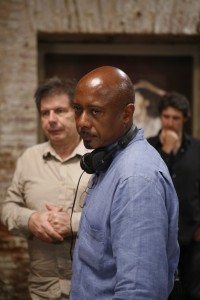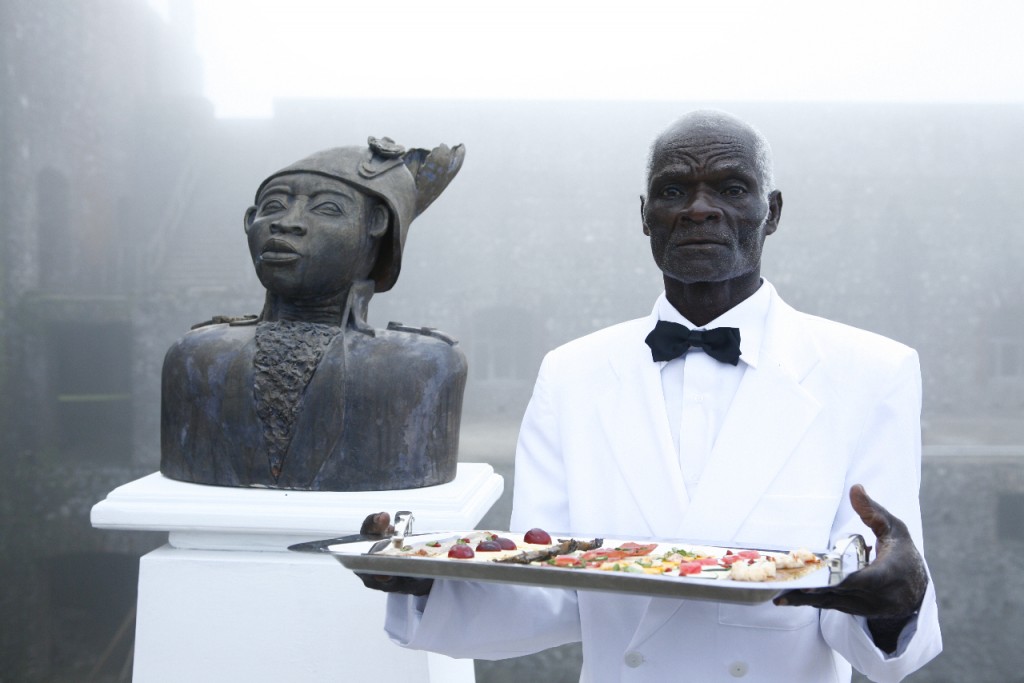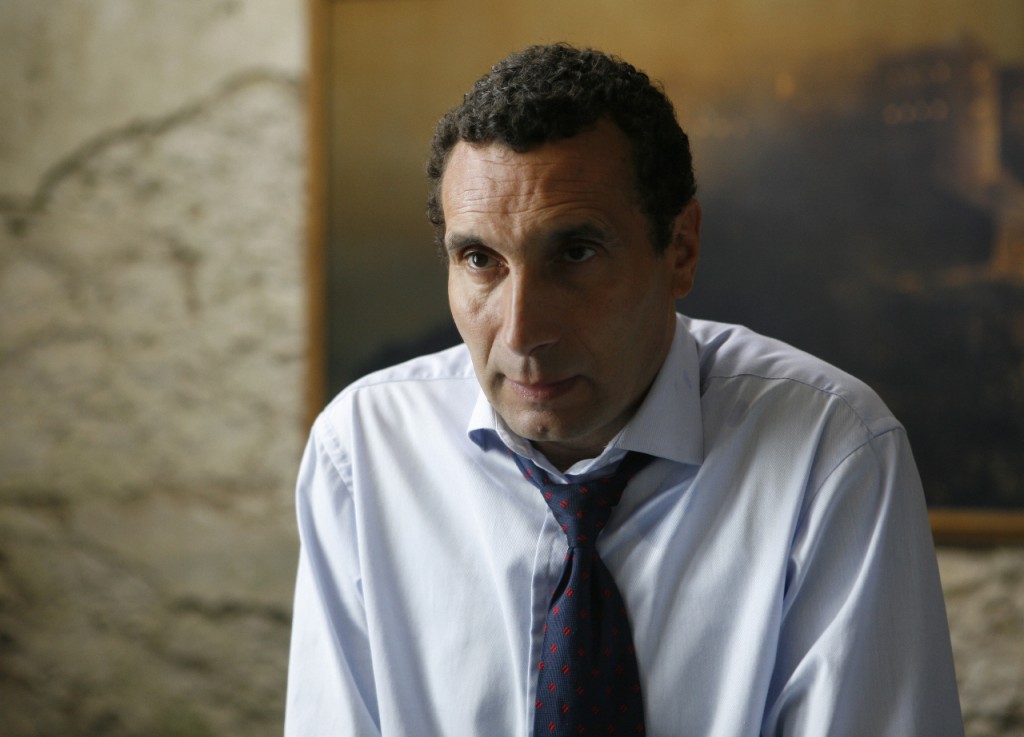Although I understand it in terms of the dictates of the infrastructure, it has always surprised me that we don’t have more films that are truly about politics and the world we live in. It seems that creators are afraid to even wade in those waters. That can not be said about filmmaker Raoul Peck, who will be in NYC this weekend to present his latest feature “Moloch Tropical” at The Human Rights Festival. I couldn’t resist asking him about the need for film to address politics, about where his inspirations come from. Today’s guest post is from Raoul, in reply.
I will always remember one of these rare press conference of then President GW Bush on the eve or after the bombardment of Bagdad by American forces. In the room the best and brightest mind of the world press. In particular the US pundits known for their incorruptible defense of freedom of speech.
And there we were, with a president obviously lying every single lines of his declaration, with nobody having enough guts to ask even one hard question, let alone to counter his transparent lies.
We came to a point where words didn’t mean anything anymore.
Flash forward, …years later in December 2008, the same president, another press conference, in Iraq.
There, for the lack of a better “word” to address the – again – lying president, this young journalist throw his shoe at him.
It was the only answer possible: absurdity, derision, ridicule.
With these same feelings I started to work on “Moloch Tropical”.
The ritual of democracy had reached such a cynical point, that only derision and irony could really address it.
“Moloch Tropical” tells the last 24 hours of power of a democratic elected president.
It could have easily been in Africa, Asia or South America or even in some western countries (think Nixon, Clinton, Berlusconi, Yeltsin…), I choose Haiti, for course.
With this film I wanted to explore the often hidden side of power. No doubt, an occasion for me to revisit my own political experiences in Haiti and elsewhere (like another one playing with a Cuban cigar after hours in the oval office).
Based on some true stories, I wanted to re-live the final day like of a man with unrestrained power (democratic or not), whose supremacy has never been challenged, who is now plunging dizzyingly into a black hole of events he cannot control?
I wanted to explore what happens behind closed doors, when this power is challenged, that moment when everything becomes possible and irretrievable at the same time? Redemption as well as demise. A tragic and unruly “Farewell to Arms”.
During these minute gaps in History, the “leader” reveals crudely his true essence, his fears, and his desires – given that there is no time left for craftiness.
But the idea is that through him, one might even see a little bit of ourselves.
With this film, I was eager to return to the recent political past of my own country, Haiti.
I wanted to re-examine, with a Shakespearian irony, the tragic and foolish nonsense of the past 60 years. A long battle for “democracy” which took no prisoner. Nowhere else but in Haiti has reality generated so much confusion and so many contradictions. Never had we enough time to look at ourselves in the mirror.
“Moloch Tropical” was shot in a unique location, the Citadelle Henry, built by King Henry Christophe at the beginning of the 19th Century atop a steep mountain in the northern part of Haiti. With approximately 100,000 square feet, it is the largest fortress in the Western Hemisphere. More importantly it is the indestructible symbol of the only nation in human history that was created by a victorious slaves revolution.
The single and unique time in which the trail of slavery which began in Gorée Island (another symbol) was permanently broken.
But at what cost?
We were considered worst than Cuba in the 60’s for the rest of the world. Imagine: former slaves leading a big nation after having won over the British, the Spanish and Napoleon armies????
All this makes it even more difficult to listen to the all-round moral superiority and victimization verses deversing upon Haiti since the recent earthquake. The United States of America have always been part of our history, unfortunately often in a very destructive way.
The latest example: Then President Clinton, today’s savior, has been instrumental in showing the economical structural adjustment model down our throat. A policy which kill the rest of our economy and made among other thing US imported rice half cheaper than locally grown rice in Haiti. Thus peasant leaving their field to go find life and non-existing work in Port-au-prince. Thus 300.000 plus dead people in the recent earthquake.
You want me to go on?
The present mess is not only ours, it is yours too.
RP
Raoul Peck’s Moloch Tropical plays Sunday, June 20 at 7:00 PM at the Film Society of Lincoln Center, Walter Reade Theater.
 Raoul Peck is a screenwriter, film director and producer, born in Port-au-Prince, Haiti. After producing and directing his first feature film, “Haitian Corner” in 1988, he directs 5 features films including “Man by the Shore” (in competition at Cannes 1993), “Lumumba” (2000) and “Sometimes in April” (2005), 4 documentaries and 2 series. His last film “Moloch Tropical” premiered at the 2009 Toronto Film Festival. In 2010, Raoul Peck has been named President of La Fémis, the French film school.
Raoul Peck is a screenwriter, film director and producer, born in Port-au-Prince, Haiti. After producing and directing his first feature film, “Haitian Corner” in 1988, he directs 5 features films including “Man by the Shore” (in competition at Cannes 1993), “Lumumba” (2000) and “Sometimes in April” (2005), 4 documentaries and 2 series. His last film “Moloch Tropical” premiered at the 2009 Toronto Film Festival. In 2010, Raoul Peck has been named President of La Fémis, the French film school.







